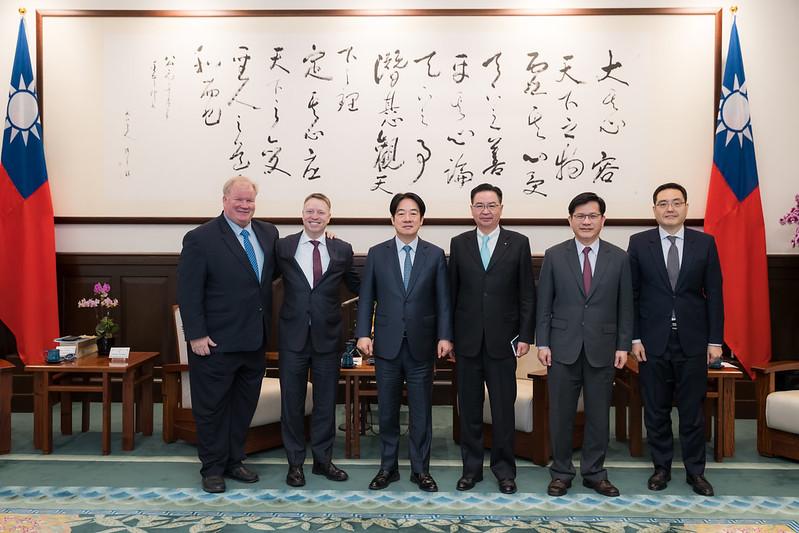Taiwan President Lai Ching-te met with former U.S. National Security Advisor Matt Pottinger in Taipei on Feb. 17 to discuss strengthening partnerships with the United States in security and building reliable “non-red” supply chains to sustain global democracies’ technological leadership.
A “non-red” supply chain is a supply chain that does not involve countries considered adversarial or high-risk.




